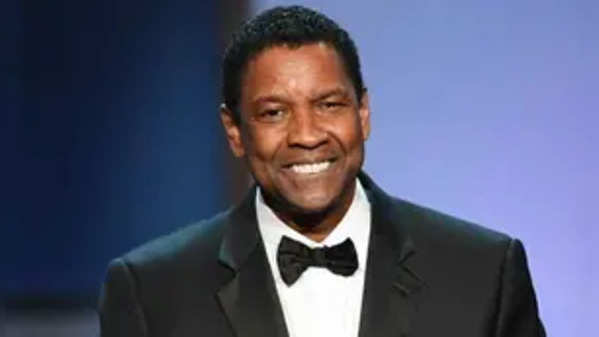Why Netflix’s The Piano Lesson Is a family affair for Denzel Washington

23-Nov-2024 01:29 AM
Denzel Washington's sons, Malcolm and John David, team up as director and lead actor in Netflix's The Piano Lesson. The film, based on August Wilson's play, centers on a family dispute over a treasured piano in 1936. Denzel and daughter Katia produce, marking a significant family affair. The film explores themes of inheritance, history, and family ties.
The first day on the set of Netflix’s The Piano Lesson was an emotional milestone for Denzel Washington . Watching his sons Malcolm, the director, and John David, the film’s lead actor, work together while sitting beside his daughter Katia, a fellow producer, left the legendary actor and filmmaker feeling like a proud father. “It was thrilling to watch all these siblings work together to create art,” says Washington’s longtime producing partner Todd Black. For Denzel, the moment was personal but also professional: “Great, we’re all here. OK, what’s next?” he recalls with his signature smile. A Legacy Storytelling Moment The Washington family’s involvement aligns perfectly with the themes of The Piano Lesson , streaming now on Netflix. Adapted from August Wilson’s acclaimed play, the story delves into family legacy and resilience. Set in 1936, it follows Boy Willie Charles ( John David Washington ) as he travels from Mississippi to Pittsburgh to sell watermelons, hoping to purchase land where his ancestors were enslaved. His plan to sell a family heirloom—a piano intricately carved with the faces of their ancestors—sparks conflict with his sister Berniece (Danielle Deadwyler), who is determined to hold onto it. “It’s a story about trauma, history, and creating a foundation for the next generation,” says Deadwyler, who portrays Berniece. John David adds that Boy Willie recognizes his sister’s strength as something passed down through their lineage. The Washington Family in Action This is the third Wilson adaptation shepherded by Denzel Washington as part of his deal with the playwright’s estate to bring Wilson’s 10 works to the screen. Denzel previously directed and starred in 2016’s Fences and executive produced 2020’s Ma Rainey’s Black Bottom . “It’s great material by a great playwright,” Denzel says. For Malcolm Washington, The Piano Lesson holds personal significance. As the younger sibling of John David and an American Film Institute graduate, this is Malcolm’s directorial debut. “The ideas in this play spoke to me directly,” he says. “It made me confront parts of myself, my ancestry, and my lineage in meaningful ways.” A Sibling Bond, On and Off Set While Denzel has a front-row seat to his children’s creative collaboration, the siblings’ admiration for each other is equally moving. John David recalls a powerful moment during the first cast read-through: “Malcolm walked in wearing all-white overalls, holding a candle, and it hit me—this isn’t just my brother. This is a director I admire and respect.” Malcolm fondly remembers visiting his brother on the set of Christopher Nolan’s Tenet . Watching Nolan guide John David through a scene brought him to tears. “The crew was staring at me like, ‘What’s happening?’” Malcolm laughs. A Family Legacy, On and Off Screen When asked about passing down lessons to his children, Denzel jokes, “I hope it’s good sense.” Still, the family’s legacy is tangible. Malcolm treasures a Bible gifted by Denzel, passed down from Denzel’s mother and her uncle. John David reflects on the impact of both parents—Denzel and Pauletta, a Broadway star and actress in films like Philadelphia . “The artist I aspire to be is a reflection of their legacy,” he says, also crediting sister Katia, whose belief in him inspires him to strive for excellence. Even Denzel has a subtle role in The Piano Lesson. Malcolm teases, “He’s a little Easter egg. His presence is represented in a poetic and beautiful way.” For the Washington family, this project is more than a film; it’s a testament to their shared history. “Years from now, we can come back to The Piano Lesson and see our story, our faces, and our voices,” says Malcolm. “Our heart is there.”